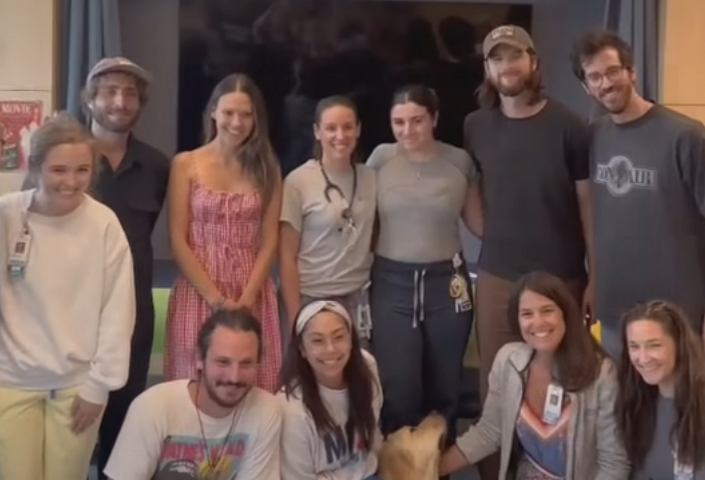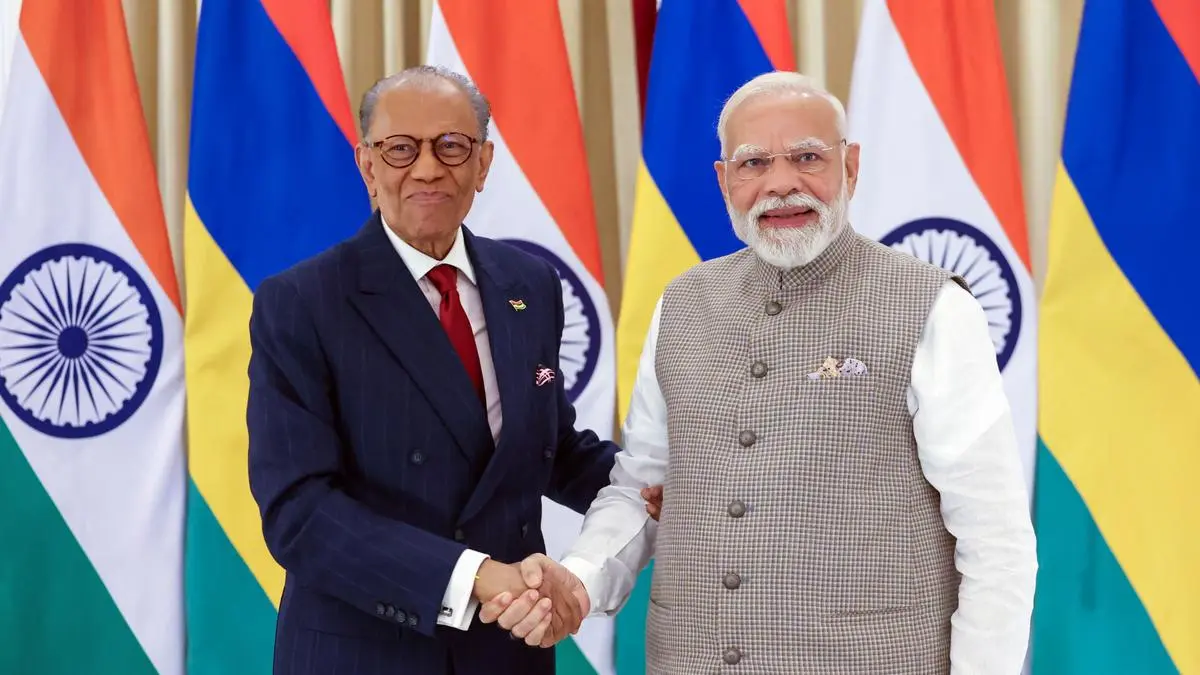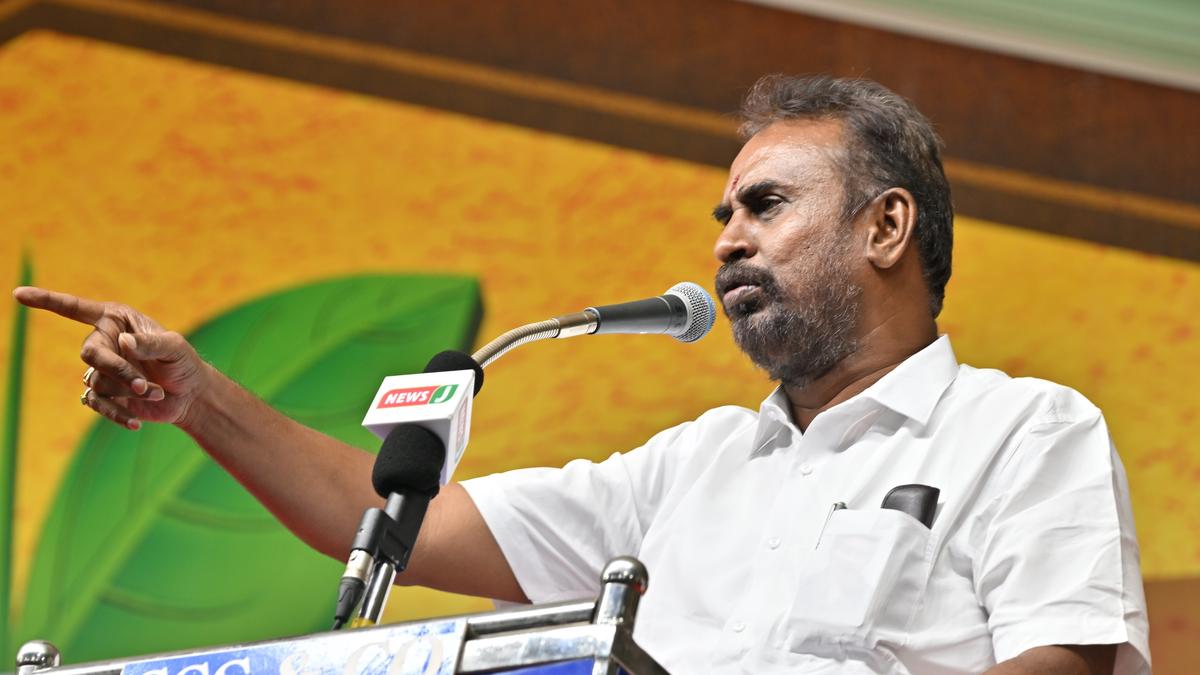
The L.A.-based, Philadelphia-reared quintet Mt. Joy are probably no one’s idea of millionaire rock stars, yet they’ve been using their platform as one of the rare breakthrough rock bands of the past decade to donate considerable amounts of money to causes that are important to them — including nearly half a million dollars on their recent tour in support of their fourth and latest album “Hope We Have Fun.”
A concert last month in Boston raised nearly $400,000 for Family Reach, a national nonprofit that provides financial resources for families facing cancer. After performing at the Newport Folk Festival in July, they drove to Boston and played an acoustic set at Mass General Brigham Hospital for young patients, and in May did the same at a North Carolina studio for patients from the Atrium Health Levine Children’s Hospital. And in August, in their hometown of Philadelphia, the band hosted a second hosted a non-perishable food drive during its two shows in town.
They’ve also donated $40,000 to rebuilding efforts in Asheville, North Carolina, after their concert in that city, donated $35,000 to the Tennessee ACLU when their Bonnaroo show was canceled due to weather, donated just under $23,500 to the American Brain Tumor Association, which was raised around awareness from their song “Lucy,” and have donated 100,000 meals through Sharing Excess food drives. Last November, they shot a video with Philadelphia Eagles center Jason Kelce (yes, Travis’ brother) to help raise money for charities in the city, and performed with him before an Eagles game.
Frontman Matt Quinn says, “We think the best way to find good opportunities to help is to make an effort to connect with people in the communities where we are giving. In Asheville, we spoke with friends there to determine where locals think they still need funding in the aftermath of Hurricane Helene. While traveling on tour, we get the chance to hear from people from all over the world and learn about local charities. In Boston, we met Carla Tardif who runs an amazing charity, Family Reach, that works directly with MGH Hospital in the city to make sure families going through cancer have the funds they need to survive.”
Also on this tour, the band played Nashville’s Grand Ole Opry for the first time, and sold out such venues as Colorado’s legendary Red Rocks Amphitheatre, New York’s Forest Hills Stadium and Boston’s TD Garden. Yet Quinn says it all pales in comparison to the feeling they get from their charitable work.
“Ultimately, we just want to be a force for good,” he concludes. “Music has given us every opportunity to do so, and there’s nothing more rewarding than hearing from someone’s heart how you’ve helped them. No ticket counts or awards or other measures of ‘success’ will ever compare to feeling like this community we’ve built is helping people.”



